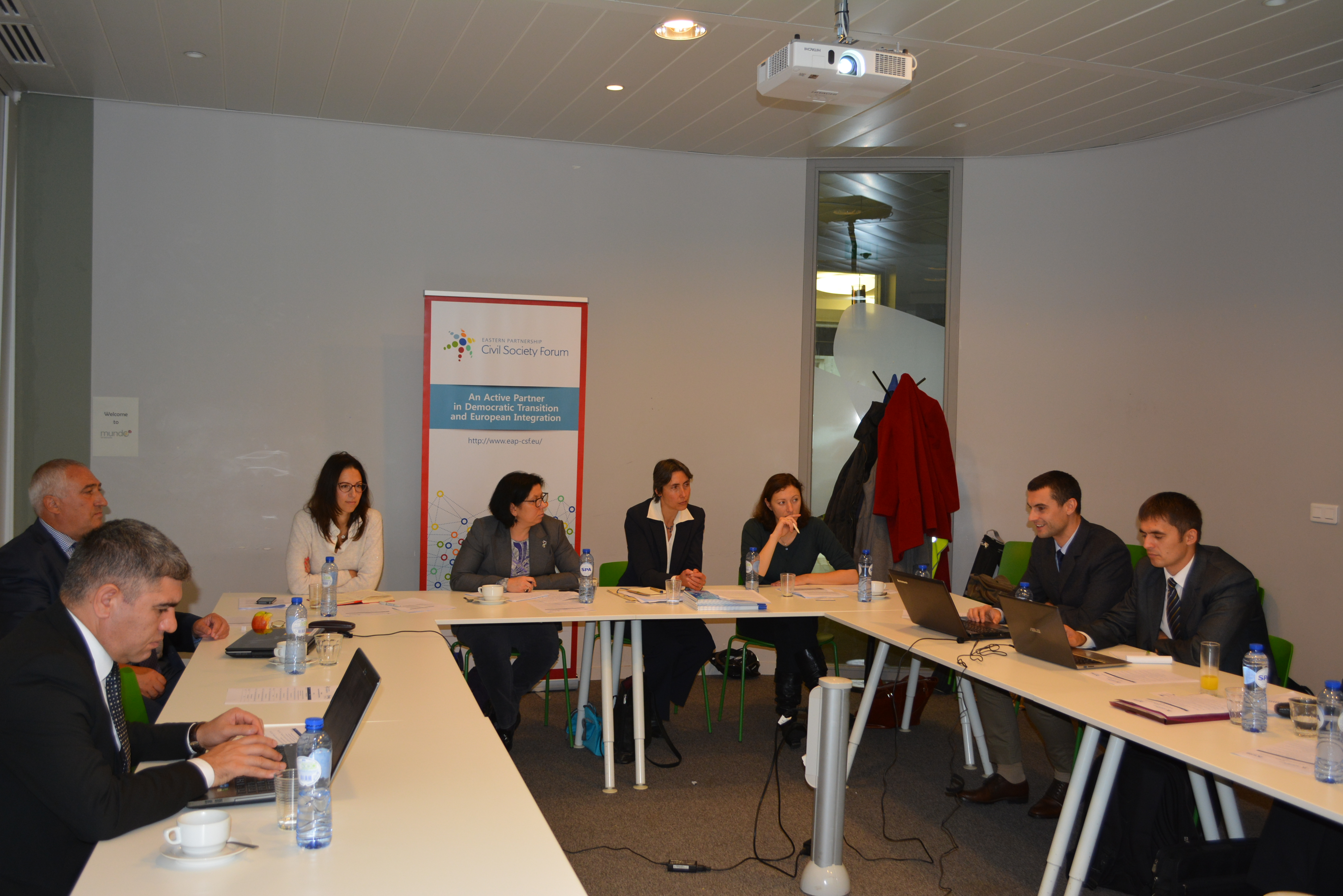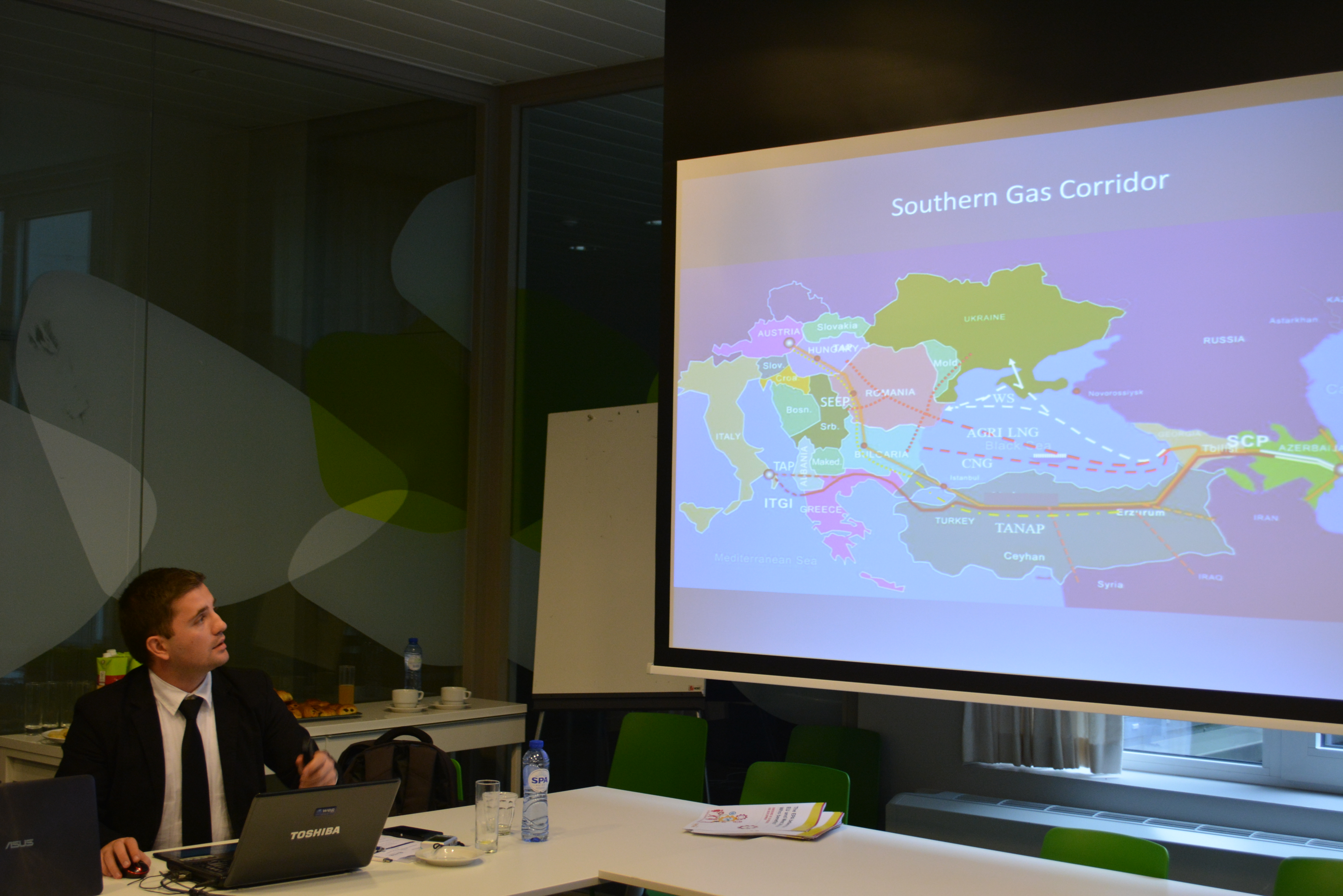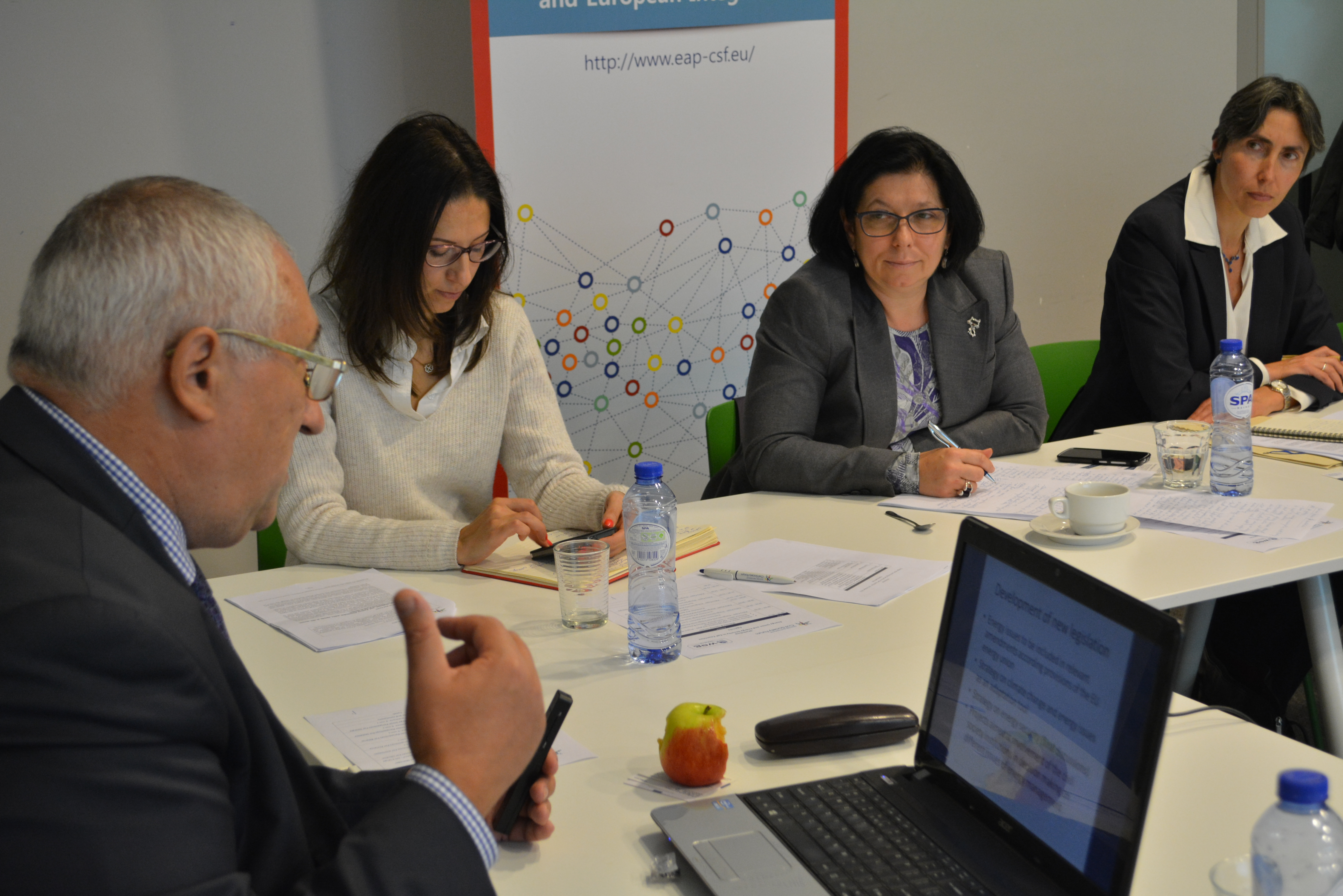|
IN THE SPOTLIGHT |
Eastern Partnership Civil Society Forum
|
|
EaP CSF Workshop on Energy Union and Energy Security in EaP Countries21 October 2015 On 20 October 2015, the Workshop on Energy Union and Energy Security in EaP Countries was organised as part of a joint project within the new EaP CSF re-granting scheme. During the workshop led by the EaP CSF member World Experience for Georgia (WEG), energy experts from EaP countries presented their policy papers and discussed the main findings of the joint project with the EU representatives: Marion Schiller-Probst (DG ENER, European Commission), Natalja Miolato (DG NEAR, European Commission) and Camelia Suică (EEAS). The main goal of the joint project is to increase the capacity of EaP CSOs in promoting an enhanced cooperation between the EU and EaP countries in energy security under the new EU initiative – Energy Union. The Energy Union was launched by the EU in February 2015 in order to improve its energy security and strengthen its position related to energy suppliers. Each EaP country has special relations with the EU in energy sector and is interested in strengthening further its bilateral relations. Moldova and Ukraine are members of Energy Community and Georgia is in the process of negotiating its membership with the European Commission. Given a low level of awareness about the Energy Union and its goals in the EaP countries, independent experts from the EaP carried out a comparative analysis of national energy policies to determine the possible influence of the new EU energy policy on the position of the respective country, also in relation to third countries supplying energy sources. After presenting the policy papers of each EaP country and exchanging the views on the findings of the project, the participants drew a number of conclusions and policy recommendations common for the six EaP countries:
Good governance and transparency in the EaP countries were mentioned as being essential prerequisites for energy security. Policy Papers Presentations: Final Publication: Energy Union and Energy Security in EaP Countries |
Project funded by the European Union
![]()










